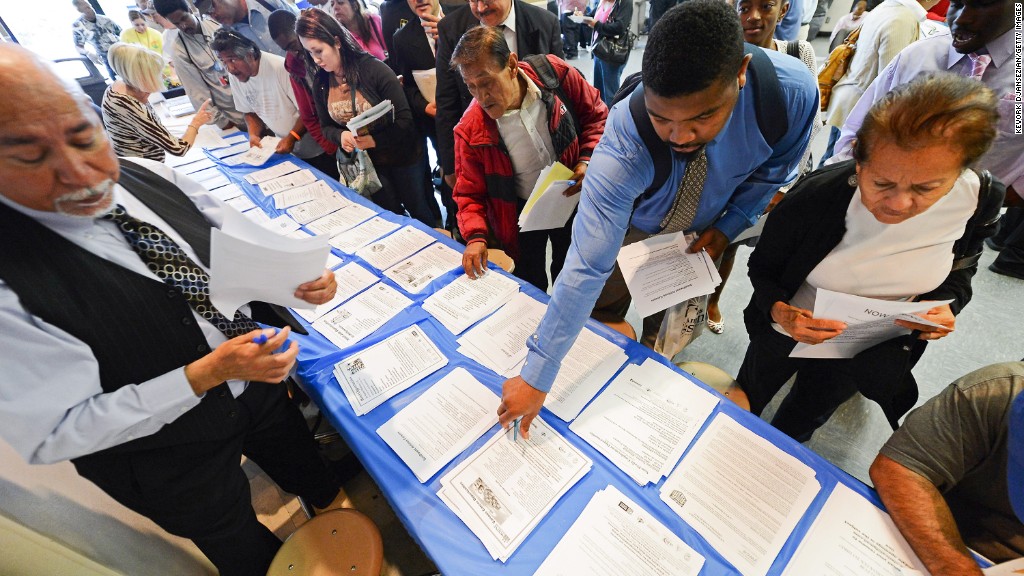
The jobs report for May was sort of meh. Fewer jobs were added than expected. Job gains for the two previous months were revised lower, too.
The bond market isn't too excited about the numbers, either. And that may be particularly bad news for President Trump.
Sure, stocks rallied after the numbers came out. But long-term bond yields fell to their lowest levels since just after Election Day.
The 10-year Treasury bond was yielding 2.15% Friday afternoon -- down from 2.45% at the start of the year and 2.62% in March.
Lower long-term bond yields mean Americans will pay less for mortgages and other debt.
But bond yields tend to slip when investors are worried about the health of the broader economy. So unusually low rates aren't necessarily something to cheer. And bond investors tend to be the "smarter money" on Wall Street compared with more emotional stock traders.
Keep in mind that rates were super low in 2008 and early 2009, too -- not exactly a time Americans remember fondly.
Related: Trump says his tax bill is 'moving along.' Really?
This is not to suggest the United States is due for another recession. But it may be unreasonable to expect the substantial increase in economic growth -- 3% a year or more -- that Trump and his economic team have promised.
"Politics and the stock market can't escape the business cycle. We are in the latter stages of a long economic expansion. The economy is good but not great," said Michael Arone, chief investment strategist with State Street Global Advisors.
Arone added that there is "no catalyst on the horizon for a significant pickup in growth."
That could change if Trump gets his economic proposals through Congress. He wants tax reform, a rollback of financial regulations and big infrastructure spending. But those plans look a lot less likely than they did when he was inaugurated.
"Investors and the administration thought it would be easy to enact these policies," Arone said. "But campaigning is much different from governing."
John Silvia, the chief economist for Wells Fargo, agrees. He said the May report -- just 138,000 jobs added -- may reset expectations for how quickly the economy can grow.
"This brings us back to reality," Silvia said. "Jobs gains of 150,000 to 170,000 a month are more likely for the rest of the year. The economy could grow at a 2% to 2.25% pace. You can't sit around and wait for 3%."
A 2% growth rate is not the end of the world. It's just not as good as many hoped for -- or as strong as Trump promised.
"We are on a modest growth trajectory," said Ed Campbell, managing director for QMA, an asset manager owned by Prudential Financial. "That is what we are seeing from the bond markets."
Related: Trump takes credit for adding 1 million jobs. That's not true
Campbell added that it will be interesting to see how the Federal Reserve reacts to this and other data. He still thinks the Fed will raise interest rates this month. But it's now a coin flip as to whether the Fed will feel confident enough to hike again later this year.
Still, one expert said it may be a mistake to be too gloomy about the jobs report.
JJ Kinahan, TD Ameritrade's chief market strategist, said investors should not forget how strong corporate earnings were in the first quarter. That could lead to future job gains.
"The numbers may not be as bad as things suggest. The bond market seems to think the economy is slowing but the stock market does not. And CEOs have hope for more growth," Kinahan said.


